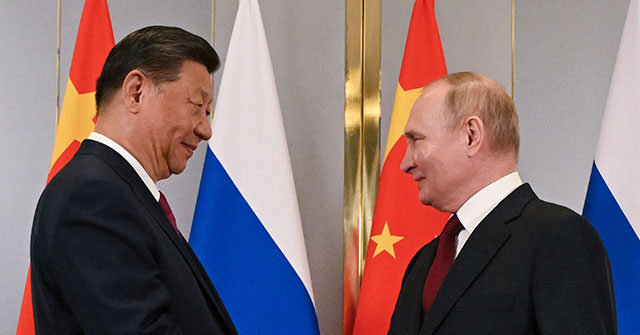Russian Finance Minister Anton Siluanov recently highlighted the BRICS economic bloc’s efforts to develop an independent international payment system, aiming to reduce reliance on Western financial systems perceived as politicized and vulnerable to U.S. pressure. This initiative, driven largely by the sanctions imposed on Russia following its military actions in Ukraine, is part of a broader strategy to establish alternatives to SWIFT, the international financial messaging system dominated by Western nations. Siluanov emphasized the bloc’s mission to enhance economic growth and income for its citizens, positioning BRICS as a counterforce to Western organizations, including the Group of Seven (G7). BRICS was originally founded by Brazil, Russia, India, and China, later expanding to include South Africa, with significant momentum building toward creating a cohesive economic platform.
In early 2024, BRICS expanded its membership to include Egypt, Iran, Saudi Arabia, the UAE, and Ethiopia, although Argentina’s planned accession was halted due to political changes. This growth signals a clear interest from numerous nations to explore alignment with BRICS, a grouping that has historically sought to eliminate dependency on the U.S. dollar and other Western financial mechanisms. Notably, despite Siluanov’s claims of BRICS being “beyond politics,” the political motives are evident—many member states harbor grievances against Western countries regarding sanctions and criticism of their human rights records. Such sentiments intensify the urgency for an independent payment system that insulates the bloc from external political interference.
The bloc’s collective stance extends beyond financial systems; BRICS members also seek to avoid culpability in global climate initiatives that typically highlight the responsibilities of industrialized nations. Remarkably, the five primary BRICS nations surpass the rest of the world in greenhouse gas emissions, complicating the bloc’s position in global climate negotiations. Despite previously benefiting from a “hands-off” approach from climate activists, BRICS countries, particularly China and India, are keen to mitigate potential liabilities as climate policy gains momentum. The envisioned payment system would integrate national and digital currencies, further entrenching BRICS nations in an alternative economic paradigm.
Siluanov advocates not only for a payment system but also for alternatives to multinational institutions such as the International Monetary Fund (IMF) and World Bank. He argues that these organizations fail to serve the interests of BRICS members effectively. The call for new institutions or frameworks draws parallels to the Bretton Woods system established in 1944, which created the IMF and the World Bank amid a drive for economic stability post-World War II. Russia’s grievances highlight the reluctance of trading partners to engage within the Bretton Woods framework due to fears of incurring additional sanctions, emphasizing the urgent need for BRICS to foster a supportive financial environment independent of Western influence.
Progress within BRICS toward creating an alternative financial infrastructure has been modest, with the New Development Bank (NDB) being a noteworthy initiative since its inception in 2015. Configured to provide financial assistance for sustainable development projects within BRICS nations, the NDB is significantly smaller compared to the IMF and World Bank, leading to criticisms regarding its operational capacity in supporting the growing needs of its expanding membership. Currently, only a fraction of NDB loans are issued in local currencies, which hinders the ultimate goal of reducing dependency on the U.S. dollar. Furthermore, environmental concerns associated with the projects funded by the NDB raise questions about the bloc’s commitment to sustainable practices, potentially undermining its credibility in broader global economic discussions.
In summary, as BRICS pursues the establishment of an independent payment system, it stands at a crossroads, attempting to reshape its economic footing amid geopolitical tensions and historical inequities in the global financial power structure. While member nations express a desire for reduced vulnerability to Western sanctions and policies, the challenge lies in effectively coordinating financial and developmental initiatives within the heterogeneous interests of its diverse member states. The road ahead for BRICS remains complex, balancing the ambitions for financial independence with the realities of governance, environmental responsibilities, and the intricacies of international relations. The evolving narrative of the BRICS bloc, intertwined with the broader geopolitical landscape, signals an ongoing evolution of economic alliances that will have lasting implications for global trade and governance.

